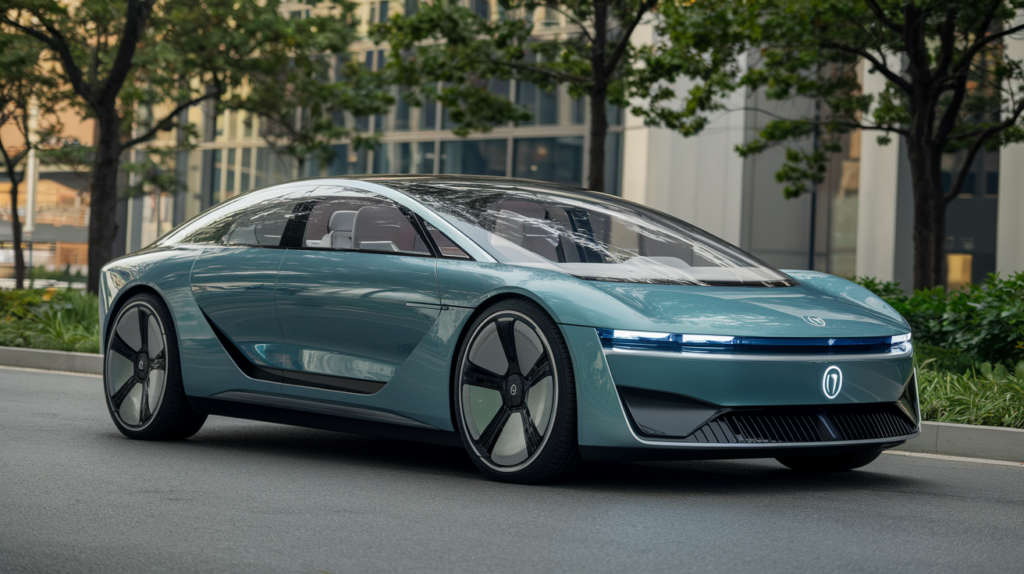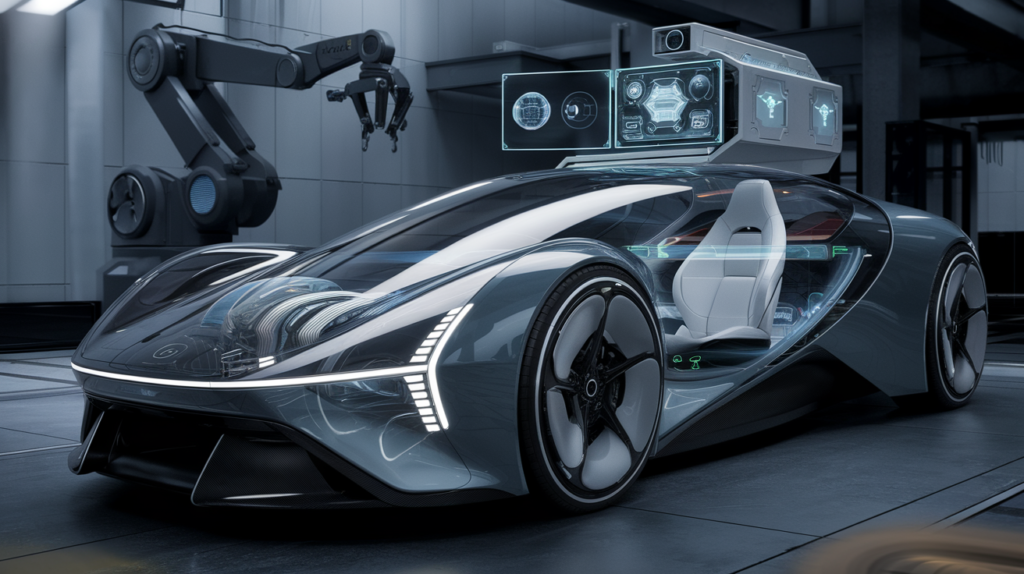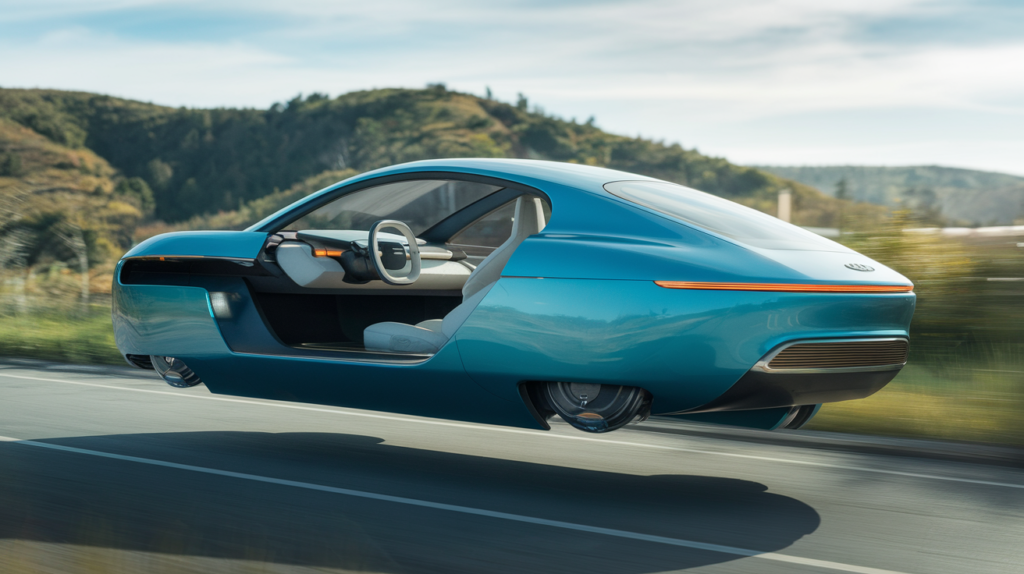Introduction
The Project Re Car initiative is set to transform the automotive industry. With the rapid advancement of technology, the need for greener, smarter, and more efficient vehicles has never been more critical. it aims to tackle these pressing issues by redesigning cars for the future, ensuring they are not only environmentally friendly but also equipped with the latest innovations in AI, connectivity, and autonomous driving.
The Genesis of Project Re Car
The concept behind Project Re Car started with a vision to create a new era of vehicles that combines sustainability, innovation, and efficiency. As the world shifts towards reducing its carbon footprint, automakers are seeking ways to contribute to this movement, and it is at the forefront of these efforts.
The Core Philosophy of Project Re Car
At its core, Project Re Car is about rethinking the traditional car model. It considers the growing demands for electric vehicles (EVs), autonomous driving, and smart connectivity. it envisions a future where cars are no longer just modes of transportation but integral components of a larger, more interconnected ecosystem.

Why Project Re Car Matters
The car industry is considered one of the most important participants to international emissions. With it, there is a dedicated effort to reduce the carbon footprint associated with traditional gasoline-powered vehicles. This initiative promises cleaner energy sources and fosters innovation in automotive design.
Sustainable Materials in Project Re Car
One of the hallmarks of Project Re Car is its commitment to sustainability. The project incorporates eco-friendly materials in the production of vehicles, moving away from traditional metal and plastic components. Recycled materials and renewable resources are at the heart of the car’s construction.
Electric Vehicles as the Future
A significant aspect of Project Re Car is its focus on electric vehicles. The project is exploring ways to improve battery technology, extend driving ranges, and reduce charging times. With the world moving towards cleaner energy, it is positioning itself as a leader in the electric vehicle revolution.
Autonomous Driving with Project Re Car
Self-driving motors are now not only a futuristic idea. it is heavily invested in developing autonomous driving technology, making vehicles safer, more efficient, and user-friendly. The project aims to bring fully autonomous cars to the market within the next decade.
Smart Connectivity in Project Re Car
Another pillar of it is the integration of smart connectivity. Vehicles developed under this project are expected to be fully connected, allowing for seamless communication with other vehicles, infrastructure, and even homes. This level of integration promises to enhance safety and efficiency on the roads.
AI-Powered Vehicles
Artificial intelligence (AI) plays a crucial role in Project Re Car. From enhancing autonomous driving capabilities to optimizing vehicle performance, AI is used to create smarter, more intuitive cars. This technology allows the vehicle to learn from its environment and make real-time decisions that improve safety and comfort.
Project Re Car and Renewable Energy
Project Re Car also explores renewable energy sources beyond electric batteries. Solar panels integrated into the car’s design, for instance, can help power auxiliary systems or extend driving ranges. This focus on renewable energy further solidifies its commitment to sustainability.
Redefining Car Ownership
Another innovative concept within Re Car is rethinking traditional car ownership models. Subscription-based services, shared vehicle ownership, and ride-hailing integrations are being explored, allowing for a more flexible and sustainable approach to vehicle use.
The Global Impact of Project Re Car
The reach of it extends beyond just the automotive industry. The initiative’s focus on sustainability, innovation, and efficiency has a broader impact on global industries, influencing how other sectors approach resource management and technological advancement.

Partnerships Driving Project Re Car
It is not an isolated endeavor. It is a collaboration between leading automakers, tech companies, and environmental organizations. These partnerships ensure that the best minds are working together to create the most innovative and sustainable vehicles.
Challenges Faced by Project Re Car
Despite its ambitious goals, it faces several challenges. The transition from gasoline-powered vehicles to electric and autonomous cars requires significant infrastructure changes, which will take time and resources to implement.
Overcoming Range Anxiety
One of the main concerns for electric vehicles is range anxiety – the fear that a car will run out of power before reaching a charging station. Project Re-Car is addressing this issue by developing more efficient batteries and expanding the charging infrastructure to alleviate consumer concerns.
Affordability and Access
Another hurdle for Project Re Car is making these innovative vehicles affordable and accessible to the average consumer. While electric and autonomous vehicles tend to have higher upfront costs, It is exploring ways to bring down prices through mass production and technological advancements.
Safety Innovations in Project Re Car
Safety is paramount in Project Re-Car. The project is developing new safety features that utilize AI, sensors, and smart connectivity to prevent accidents and protect passengers. These innovations include collision avoidance systems, automated emergency braking, and enhanced visibility through real-time data sharing.
The Role of Governments in Project Re Car
Government policies play a critical role in the success of Project Re Car. Supportive legislation, subsidies for electric vehicles, and investment in charging infrastructure are essential for the widespread adoption of the project’s innovations.
Consumer Response to Project Re Car
Public perception is crucial for the success of Project Re-Car. Consumers are becoming more environmentally conscious, and there is growing demand for vehicles that align with these values. It is tapping into this market by creating cars that meet and exceed these demands.
The Future of Mobility with Project Re Car
Project Re Car is not just about cars; it’s about the future of mobility as a whole. The project envisions a world where transportation is cleaner, smarter, and more integrated with our daily lives. Whether it’s through autonomous vehicles or electric cars, it is shaping the future of how we move.
Environmental Benefits of Project Re Car
Reducing greenhouse gas emissions is one of the primary goals of Project Re Car. By shifting towards electric and autonomous vehicles, the project aims to drastically cut emissions and improve air quality in urban areas.
Economic Impact of Project Re Car
The economic implications of it are significant. As new technologies are developed and adopted, there will be an increase in job opportunities within the tech, automotive, and renewable energy sectors. This project is poised to create a ripple effect throughout the global economy.
The Role of Data in Project Re Car
Data is a key component of it. The integration of AI and smart connectivity allows vehicles to collect and analyze vast amounts of data, leading to improvements in performance, safety, and user experience.
Urban Planning and Project Re Car
As cities become more congested, urban planners are looking for ways to incorporate Project Re Car innovations into their designs. Autonomous and electric vehicles can help reduce traffic congestion, lower pollution levels, and make cities more livable.
Charging Infrastructure for Project Re Car
A robust charging infrastructure is essential for the success of it. The project is working closely with governments and private companies to expand the charging station network, ensuring that electric vehicles are convenient for everyday use.
The Role of Startups in Project Re Car
While large automakers play a significant role in it, startups are also contributing innovative ideas and technologies. These smaller companies often bring fresh perspectives and agile solutions to the challenges facing the automotive industry.
Reducing Dependency on Fossil Fuels
It is a major step towards reducing global dependency on fossil fuels. By promoting electric and renewable energy sources, the project is helping to shift the automotive industry away from gasoline and diesel.
Enhancing the Driving Experience
Beyond sustainability and autonomy, it is focused on enhancing the driving experience. Features such as customizable interiors, voice-activated controls, and advanced navigation systems are all part of the project’s vision for the future of vehicles.

Reducing Production Emissions
It is not only focused on the end product but also on the production process itself. By utilizing more sustainable manufacturing methods, the project is reducing the emissions associated with producing vehicles.
The Global Reach of Project Re Car
It is a global initiative, with companies and governments from around the world participating. This international collaboration ensures that the innovations developed through the project can be implemented in different regions and adapted to local needs.
The Long-Term Vision of Project Re Car
The long-term vision of Project Re Car is to create a sustainable, interconnected world where vehicles are no longer a burden on the environment but a part of the solution. By combining the latest technologies with a commitment to sustainability, it is paving the way for a greener, smarter future.
conclusion
Project Re Car is much more than just an automotive project—it’s a movement towards a better future. With its focus on electric vehicles, autonomous driving, sustainability, and smart connectivity, it is set to revolutionize the way we think about transportation. As the world grapples with climate change and resource depletion, initiatives like it offer a glimpse of hope, showcasing how innovation can lead us toward a more sustainable and efficient future.
